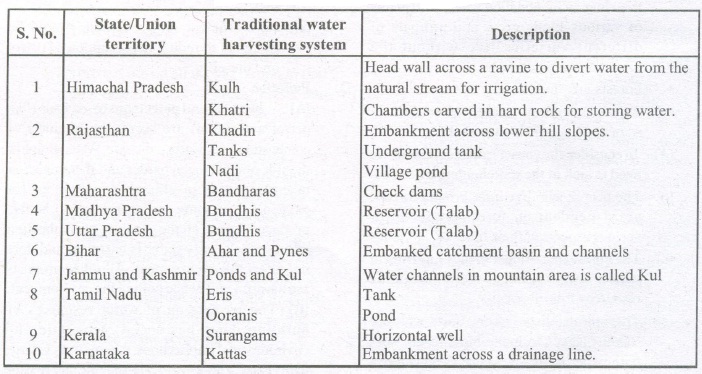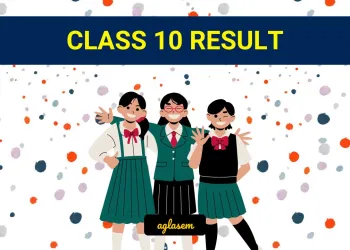Class 10 Science Management of Natural Resources – Get here the Notes for Class 10 Science Management of Natural Resources. Candidates who are ambitious to qualify the Class 10 with good score can check this article for Notes. This is possible only when you have the best CBSE Class 10 Science study material and a smart preparation plan. To assist you with that, we are here with notes. Hope these notes will help you understand the important topics and remember the key points for exam point of view. Below we provided the Notes of Class 10 Science for topic Management of Natural Resources.
- Class: 10th
- Subject: Science
- Topic: Management of Natural Resources
- Resource: Notes
CBSE Notes Class 10 Science Management of Natural Resources
Candidates who are pursuing in Class 10 are advised to revise the notes from this post. With the help of Notes, candidates can plan their Strategy for particular weaker section of the subject and study hard. So, go ahead and check the Important Notes for CBSE Class 10 Science Management of Natural Resources from this article.
. Anything in the environment which can be used is called a natural resource.
Controlling system for the use of natural resources in such a way as to avoid their wastage and to use them in the most effective way is called management of natural resources.
Ganga Action Plan (GAP) was formulated to reduce pollution load of river Ganga by more than 75%. The water quality has been tested from time to time by checking coliform (group of harmless bacteria in human intestine) number/ 100 ml.
2. Forest and wild life :
- Forests are vast areas, located far away from human inhabitation where wild plants of various kinds grow and animals of different varieties live without the intervention of humans.
- Forests are “biodiversity hot spots”.
- A person with an interest or concern in something is called a stakeholder.
(A) To consider the conservation of forests, we need to look at the stakeholders who are :-
(i) The people who live in or around forests, are dependent on forest products for various aspects of their life.
(ii) The Forest Department of the Government which owns the land and controls the resources from forests.
(iii) The industrialists — from those who use `tendu’ leaves to make bidis to the ones with paper mills — who use various forest produce.
(iv) The wild life and nature enthusiasts who want to conserve nature in its pristine form.
- A major programme called silviculture has been started to replenish the forests by growing more trees and plants.
Steps for conservation of energy resources are :
(i) Save electricity, water etc by not using useless.
(ii) Use energy efficient electrical appliances to save electricity.
(iii) Use pressure cooker for cooking food.
(iv) Use solar cookers.
(v) Encourage the use of biogas as domestic fuel.
(vi) Fuel efficient motor vehicle should be designed to reduce consumption of petrol and diesel.
3. Pollution
(A) When coal and petroleum based fuels (like petrol and diesel) are burnt, the products of combustion are : Carbon dioxide, Water, Sulphur dioxide and Nitrogen oxides and if combustion take place in an insufficient supply of air (or oxygen), then some carbon monoxide is also produced. Out of all the products of combustion
of these fuels, only water is harmless and does not affect the environment. All other products are harmful and hence pollute the environment.
(B) The harnessing of water resources by building dams has social, economic and environmental implications. Alternatives to large dams exist. These are locale-specific and may be developed so as to give local people control over their local resources.
- The fossil fuels, coal and petroleum, will ultimately be exhausted. Because of this and because their combustion pollutes our environment, we need to use these resources judiciously.
- The destruction of forests affects not just the availability of forest products but also the quality of soil and the sources of water.
- Large scale killing of snakes disrupts the food chains in which snakes occur and creates and imbalance in nature.
- The various sources of water which are available to us are: Rains, Rivers, Lakes, Ponds, Wells, Oceans and Glaciers (Snow mountains). Rain is a very important source of water.
- The pollution of river water is caused by the dumping of untreated sewage and industrial wastes into it.
- The contamination of river water can be usually found from two factors :
(i) the presence of coliform bacteria in river water, and
(ii) measurement of pH of river water.
(a) Rain water harvesting is an age-old practice in India. Water-harvesting techniques used depend on the location where it is to be used.
Various advantages of water stored in the ground are :-
(i) The water stored in ground does not evaporate.
(ii) The water stored in ground spreads out to recharge wells and provides moisture for crops over a wide area.
(iii) The water stored in ground does not promote breeding of mosquitoes (unlike stagnant water collected in ponds or artificial lakes).
(iv) The water stored in ground is protected from contamination by human and animal

(b) Traditional Water Harvesting Systems
Class 10 Key Points, Important Questions & Practice Papers
Hope these notes helped you in your schools exam preparation. Candidates can also check out the Key Points, Important Questions & Practice Papers for various Subjects for Class 10 in both Hindi and English language form the link below.
| Class 10 Maths | कक्षा 10 गणित |
| Class 10 Science | कक्षा 10 विज्ञान |
| Class 10 Social Science | कक्षा 10 सामाजिक विज्ञान |
| Class 10 English |
Class 10 NCERT Solutions
Candidates who are studying in Class 10 can also check Class 10 NCERT Solutions from here. This will help the candidates to know the solutions for all subjects covered in Class 10th. Candidates can click on the subject wise link to get the same. Class 10 Chapter-wise, detailed solutions to the questions of the NCERT textbooks are provided with the objective of helping students compare their answers with the sample answers.
Class 10 Mock Test / Practice
Mock test are the practice test or you can say the blue print of the main exam. Before appearing in the main examination, candidates must try mock test as it helps the students learn from their mistakes. With the help of Class 10 Mock Test / Practice, candidates can also get an idea about the pattern and marking scheme of that examination. For the sake of the candidates we are providing Class 10 Mock Test / Practice links below.
Class 10 Exemplar Questions
Exemplar Questions Class 10 is a very important resource for students preparing for the Examination. Here we have provided Exemplar Problems Solutions along with NCERT Exemplar Problems Class 10. Question from very important topics is covered by Exemplar Questions for Class 10.
CBSE Class 10 Science Notes Maths Notes Social Science Notes English Notes
To get study material, exam alerts and news, join our Whatsapp Channel.

